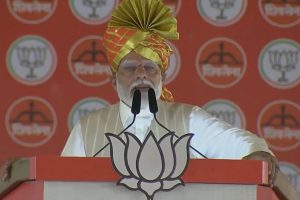The term, research, has of late come in tremendous vogue globally. A staunch admirer of the present times would surely view this as a clear testimony in support of the populist branding of the present age as a ‘knowledge society’. Likewise, while the whole world used to know the word, university, in its one single name and genre, there has now emerged its sub-specie, the ‘research university’, as if research is not necessarily a characteristic component of a university. This leaves us with confusion if not chaos. Research in a very general sense of a pursuit or endeavour of making or finding something new or different or unknown can be, or indeed is, undertaken at various levels and places corresponding to diverse kinds of needs, purposes and motivations. For example, an entrepreneur, before launching a manufacturing project for a new/different product for profit conducts at the outset a survey ~ a well-known statistical tool for research ~ of the needs and tastes amongst prospective consumers. Such a commercially motivated survey is popularly branded as ‘market research’, distinct from cultivation of new basic ‘knowledge’ which by definition is a public good. Likewise, most of the large industries/corporate houses create a separate department in which specialised personnel are employed to innovate ~ by utilizing the existing or invented basic knowledge ~ either newer/ differentiated product or costcutting methods and techniques of production. Although this department is popularly known as the ‘research and development’ (R&D) wing of the industry, it is not an academic unit, since its central concern is not with the creation or modification of basic knowledge. Many big pharmaceutical firms invest a huge sum annually on R&D for sponsoring research by highly qualified persons, who by utilizing existing academic knowledge innovate a new medicine which or of which patent the firm will sell for profit. Such ‘innovations’ in R&D wing which have little to do with cultivation of original thoughts or new academic knowledge belong to the currently coined term ‘innovative research’ and do not ideally qualify for what is meant by ‘academic research’ which is characteristically undertaken in educational institutions with a view to advancing or enriching basic (original) knowledge. In case of successful academic/scientific research, an invention in the form of either revising or modifying or adding to the existing/underlying theory or knowledge has traditionally been required to follow from the scientist’s original thinking and depth of research, while any research restricted to only application of already invented knowledge has been called innovation and is not considered as a part of basic knowledge/ academic output. Clearly the former calls for superior levels of intellectual, analytical and creative resources to those required in the case of the latter. As innovations meant for creating marketable knowledge for profit have an ever-growing demand from private businesses along with overall economic growth, this perennially leaves an inducement for capitalists to invade into academic arena for generating various innovations by diverting or drawing on the superior intellectual/creative minds characteristically cultivated in educational institutions. But such capitalist invasion into academia has for long been kept at bay by democratic power politics, enlightened social and educational ethos, and the dominant influence of liberal ideology on academia up and till the 1940s, the beginning of the Cold War. The latter soon empowered mainstream economics profession with the leadership role in shaping a dominant pattern of ideas and intellectual climate which would be ever ready to propagate and praise the centrality of market, trade, industry, technology, economic incentives and profits in all spheres including education. Thanks to vigorous pro-market ideational initiatives of those who held either wealth or power or both, the whole world soon witnessed such radical intellectual and ideational ‘innovations’ and campaigns that a billionaire industrialist came to be considered nearly at par if not higher ~ in terms of societal esteem and reverence ~ than a Nobel prize winner; an executive of a big business house came to be considered more eligible or suitable than a creditable scholarly academician for the position of vicechancellor of even a renowned historic university or academic institution. Previously the vocabulary of the word, research, used to be restricted and tight. Research used to be known mostly in the academic sense of the term which essentially consists of an intellectual/academic activity, exercise and pursuit motivated squarely by an overriding aim of expanding or revising or refining the existing stock of ‘knowledge’ in any branch of disciplined or systematic or scientific study. As its corollary, academic research is ideally inspired by either the researcher’s academic urge for making a distinct contribution to the advancement of knowledge or by a curiosity for answers to hitherto unknown questions, or both, rather than demands and dictates of the market and popularity or popular needs. This passionate academic pursuit and inspiration came to be twistingly expressed as ‘knowledge for knowledge’s sake’ ~ a commonly deployed slogan used by neoliberal thinking in a sarcastic tone to value only those research projects which would directly and immediately come to society’s material benefits or economic growth. But there is a great (potential) danger for humanity in a propagation of such a populist viewpoint as even academic research should inevitably be on those issues or questions which can directly or immediately add to what is sometimes loosely called ‘useful knowledge’. Indeed, no new/original knowledge produced by genuinely academic research should ideally be called ‘useless’ just as, metaphorically speaking, a goal-less football match cannot judiciously be judged as wasted. The mainspring of academic/ original research in any discipline ideally originates ~ of course given an intellectually able mind ~ in an innate urge/ curiosity and motivation on the part of the researcher to contribute to the received stock of knowledge. This inner urge/motivation enables her to sustain the stress, pains, patience and uncertainty involved in original research, apart from her longing for the invaluable feeling of joy and esteem flowing from her intellectual achievement. This intrinsic academic urge is distinct from a common desire of a researcher for personal career enhancement and professional and material growth. Given all other things being constant, the more intense the urge/ motivation/ curiosity for academic contribution, the greater would be the endurance of intellectual challenges, pangs and pains, and hence greater would be the quality and standard of the research work.
(To Be Concluded)
The writer is Rajiv Gandhi Chair Professor, Central University of Allahabad, and can be reached at arupmaha@yahoo.com











